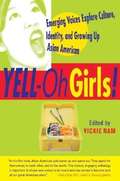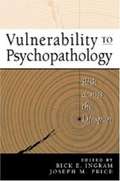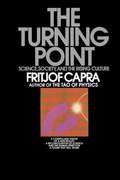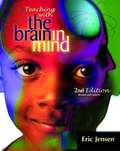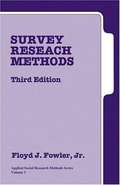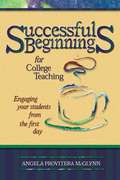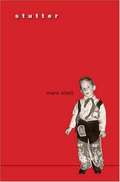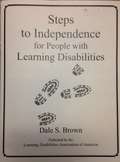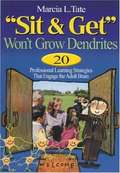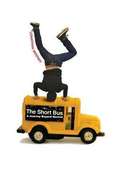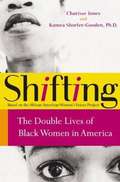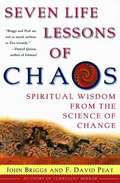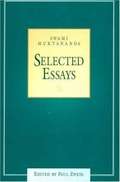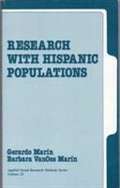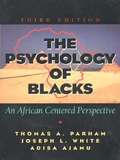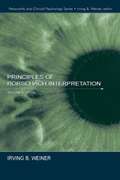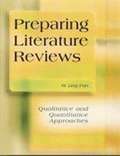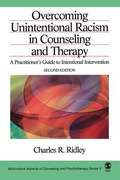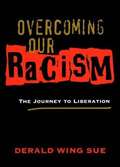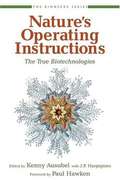Special Collections
Alliant International University Psychology Collection
Description: Alliant International University donated an electronic collection of psychology books to the Bookshare library as part of their school-wide effort to scan and share its course materials with Bookshare users across the country. #general
- Table View
- List View
Yell-Oh Girls! Emerging Voices Explore Culture, Identity, and Growing Up Asian American
by Vickie NamThe collection includes 80 brief selections (most are under three pages) by budding writers between 15 and 22 years of age, from all over the country.
What Disability Service Providers Should Know About Psychiatric Disabilities
by Ed FiloThis book examines the legal implications in accommodating students with psychiatric disabilities in college. Case law, OCR letters, and other applications are discussed.
Vulnerability to Psychopathology
by Joseph M. Price and Rick E. IngramPresents 20 contributions primarily written by psychology professors addressing vulnerability to psychopathological disorders across the lifespan. The volume introduces, reviews, and contextualizes concepts of vulnerability in psychopathology. The idea of personality from the perspective of childhood development is then discussed, with implications for adult personality disorders. The major Axis I disorders are then examined in terms of adolescents and adults: alcohol/substance abuse, depression, anxiety, schizophrenia, and eating disorders. Summaries and ideas for future exploration are also covered. Annotation c. Book News, Inc., Portland, OR (booknews.com)
United We Stand
by Eliana GilThis book is written for individuals with multiple personalities, and explains what multiplicity is, why it develops, how to understand it, and when and how to seek help. Multiples have too long suffered with nagging worries about being crazy or so unique that they cannot have friends or companionship. This book defines multiplicity as a creative and life-saving adaptive strategy, not as a "disorder" or sign of mental illness.
The Turning Point
by Fritjof CapraCapra discusses the philosophical implications of modern science.
Theories of Illness
by George Peter MurdockTheories of Illness establishes a new landmark in comparative studies. Utilizing concepts from modern medicine and anthropological theory, Professor Murdock distinguishes the natural causes of illness from theories of supernatural causation. He subdivides the latter into theories of illness that are related to aggression (witchcraft, sorcery, and spirit aggression) and those which are related to guilt and a sense of sin (taboo violation and mystical retribution). Obviously, these relate to man's most basic beliefs as revealed in early religions.
Teaching with the Brain in Mind
by Eric JensenIn easy to understand, engaging language, Jensen provides a basic orientation to the brain and its various systems and explains how they affect learning. After discussing what parents and educators can do to get children's brains in good shape for school, Jensen goes on to explore topics such as motivation, critical thinking skills, environmental factors, the "social brain," emotions, and memory and recall. He offers fascinating insights on a number of specific issue, including * How to tap into the brain's natural reward system. * The critical link between movement and cognition. * The impact on learning of environmental factors such as lighting, temperature, and noise. * The value of feedback. * The importance of prior knowledge and mental models. * Why stress impedes learning. * How social interaction affects the brain. * How to help students improve their ability to encode, maintain, and retrieve learning. The repeated message to educators is simple: You have far more influence on students' brains than you realize. And you have an obligation to learn as much as you can to take advantage of the incredible revelations that science is providing. The revised and updated Teaching with the Brain in Mind, 2nd edition helps you do just that.
Survey Research Methods
by Floyd J. Fowler Jr.Popular with those who want to collect, analyze, or read about survey data this book provides a sound basis for evaluating how each aspect of a survey can affect its precision, accuracy and credibility. Coverage includes: Improved techniques for evaluating survey questions, the latest options available to researchers in using the computer and the Internet for surveys, recent methodological findings to enhance survey research.
Successful Beginnings for College Teaching
by Angela Provitera-McglynnLaying the groundwork for a successful semester starts with the first day of class. Author Angela Provitera McGlynn tells that the first day is not the day to pass out a syllabus and let everyone go. Rather, it's the day to set the context for the rest of the semester. The author stresses the need for developing an atmosphere of respect for diversity while simultaneously providing a safe and exciting place to explore differences. Included are a whole variety of ice breakers and other exercises to keep students engaged and interacting. In addition, such vital issues as environment, motivation, and civility are addressed with suggestions for promoting positive interactions.
Stutter
by Mark ShellShell offers an impressive if challenging memoir-cum-treatise on the contributions of stuttering to the arts and beyond.
Students with Learning Disabilities at Graduate and Professional School
by Stanley J. AntonoffThis comprehensive text examines strategies to help students with learning and attentional disabilities get the most out of their graduate school experience.
Steps to Independence for People with Learning Disabilities
by Dale S. BrownThe booklet is designed to help learning disabled (LD) adults become economically independent and fulfill their potential. Introductory chapters define LD and specify such types of LD as auditory perceptual problems, catastrophic responses, directional problems, disinhibition, perceptual problems, and short term memory problems. Psychological effects of never being diagnosed are noted as well as potential dangers of being labeled. Suggestions for securing a professional diagnosis and for diagnosing one's self are given. Parents are encouraged to find practical solutions to family life problems and to teach independent living skills. Vocational aspects are examined, including searching for a job, choosing the right one, and being proud of one's job. Ideas are listed for analyzing strengths and weaknesses to overcome one's own handicap. The importance of social skills training is stressed. Practical coping strategies for dealing with perceptual problems (visual perception, dyslexia, and auditory perception) and central nervous system disorganization (directionality, hyperactivity, disinhibition, catastrophic response, and perseveration) are addressed. A final chapter lists sources of further information, professional help, and self help groups.
"Sit and Get" Won't Grow Dendrites
by Marcia TateThis book discusses best teaching practices in a fun and engaging way.
The Short Bus
by Jonathan MooneyA young man once called unteachable journeys across America to investigate the lives of those, like himself, who are forced to create new ways of living in order to survive Labeled "dyslexic and profoundly learning disabled with attention and behavior problems," Jonathan Mooney was a short bus rider--a derogatory term used for kids in special education and a distinction that told the world he wasn't "normal. " Along with other kids with special challenges, he grew up hearing himself denigrated daily. Ultimately, Mooney surprised skeptics by graduating with honors from Brown University. But he could never escape his past, so he hit the road. To free himself andto learn how others had moved beyond labels, he created an epic journey. He would buy his own short bus and set out cross-country, looking for kids who had dreamed up magical, beautiful ways to overcome the obstacles that separated them from the so-called normal world. InThe Short Bus, his humorous, irreverent, and poignant record of this odyssey, Mooney describes his four-month, 35,000-mile journey across borders that most people never see. He meets thirteen people in thirteen states, including an eight-year-old deaf and blind girl who likes to curse out her teachers in sign language. Then there's Butch Anthony, who grew up severely learning disabled but who is now the proud owner of the Museum of Wonder. These people teach Mooney that there's no such thing as normal and that to really live, every person must find their own special ways of keeping on. The Short Bus is a unique gem, propelled by Mooney's heart, humor, and outrageous rebellions.
Shifting
by Charisse Jones and Kumea Shorter-GoodenInscription from the author: The Users of Bookshare.org-- May you find ways to fulfill your dreams and to help create a better world---Kumea Shorter-Gooden Shifting A RESOURCE FOR WOMEN THAT Finally gives a name to the behavioral changes and emotional ups and downs that Black women undergo in the face of bias Shows how age-old myths and stereotypes continue to affect Black women today Breaks down the coping mechanisms Black women utilize to deal with discrimination, such as walling it off and fighting back Candidly talks about the home codes Black women must follow within their own community, such as speaking a certain way or behaving submissively in church or with their partners Pointedly discusses how undervalued and overlooked many Black women feel in the workplace Shows the connection between dealing with bias and the disproportionately high rates of hypertension, obesity, and depressive symptoms among Black women Sheds light on the Sisterella complex, a distinct manifestation of depression common among Black women Explores the lily complex, the pressure Black women feel to reflect a White beauty ideal Provides answers and offers examples of how women can reconnect with their true selves by seeking professional counseling, starting their own businesses, joining support groups, or taking other proactive steps WHAT SETS THIS BOOK APART Based on the African American Womens Voices Project, this is one of the most comprehensive studies ever conducted of Black womens experiences with bias Engages all people, regardless of gender or ethnicity, with its poignant stories and common themes Unlike most books in the marketplace, Shifting explores the impact of both racial and gender bias on Black women Written in an accessible style; the dozens of women interviewed tell their personal stories in their own voices. Their honesty reminds readers that they are not the only ones dealing with certain challenges Weaves together the existing research on the impact of bias on Black women while also building upon it with original findings Gives a window into the experiences of 19 million Americans Shines a light on the persistence of bias and discrimination in the twenty-first century and provides insights for all Americans on how we might build a fairer and more just society
Seven Life Lessons of Chaos
by John Briggs and F. David PeatIntroduces the major ideas of chaos theory. Shows how they can be used metaphorically in day to day living.
Selected Essays
by Swami Muktananda and Paul ZweigResponding to his students' wishes, Swami Muktananda's series of talks and informal dialogues on spiritual practices and truths includes many of his favorite teaching stories.
Research with Hispanic Populations
by Gerardo Marin and Barbara Vanoss MarinThe authors discuss different issues related to research with Latino populations.
Reducing Barriers to Training of Blind Graduate Students in Psychology
by Heidi JoshiTo increase the number of psychologists with visual impairments, all levels of the pipeline, from graduate training through practica and internship, need to be accessible to this population. This study sought to determine the types of barriers students who are blind face in their psychology graduate programs. The areas explored in the study included accessing printed materials throughout participants graduate process, administering and scoring test protocols, accessing sources for research, and obtaining campus-wide communications. Attitudinal barriers were also explored in this study, particularly from supervisors, instructors, and peers. There is very little research in this area and as a result, this study was designed to elucidate the experiences of participants with visual impairments in their graduate programs. One goal was to give training institutions a better understanding of the barriers faced by students who are blind. Nineteen participants were interviewed using a semi-structured questionnaire consisting of yes/no and open-ended questions. Descriptive statistics were utilized in order to obtain the major themes of the responses. The most universal barrier related to the plethora of printed material encountered in graduate training. Nearly all of the participants discussed difficulties in obtaining printed material in alternate formats. They especially found it difficult to get enough sources in a timely manner for their research. Participants discussed missing class changes or other important details due to this information being posted in print and not accessible to them. Attitudes were a second barrier frequently encountered. Participants stated that they had to contend with the prejudicial attitudes of supervisors, professors, and peers who were meant to assist them in their process. Participants also discussed their wish to have more disability related awareness and education activities implemented in the curriculum of their graduate institutions. This would assist these institutions in overcoming the attitudinal barriers experienced by their students who were blind. However, participants also discussed supportive factors such as partners and professors who would provide appropriate classroom accommodations. Despite the over thirty years since passage of the rehabilitation act, and the fourteen years since the implementation of the American with Disabilities Act. Results indicate that numerous barriers still exist for graduate psychology students who are blind. These barriers must be aggressively addressed for persons who are blind to be afforded equal access to training in psychology.
The Psychology of Blacks
by Thomas A. Parham and Joseph White and Adisa AjamuThis book highlights the limitations of traditional psychological theories and approaches when applied to African descent people.
Principles of Rorschach Interpretation
by Irving B. WeinerBooknews A clinician-friendly guide to using the Rorschach inkblot test. Part I addresses basic considerations, with chapters on conceptual and empirical foundations. Part II comprises six chapters on elements of interpretation contributing to Rorschach protocol, and illustrates guidelines for translating Rorschach findings into descriptions of structural and dynamic aspects of personality functioning. Part III presents 10 case illustrations of how interpretive principles can be used to identify personality functioning in clinical practice. Annotation c. by Book News, Inc., Portland, Or.
Preparing Literature Reviews
by M. Ling PanHow to review and synthesize research reports for academic writing such as a thesis or dissertation.
Overcoming Unintentional Racism in Counseling and Therapy
by Charles R. RidleyDiscusses how individuals can learn how to confront their racist attitudes and become allies.
Overcoming Our Racism
by Derald Wing SueThis uncompromising anti-racist manifesto written for a white audience is concerned less with Klansmen and skinheads than with the white woman clutching her purse when minority teenagers draw near; the white man flinching at getting in an elevator full of black men; even the well-meaning but patronizing liberal teacher in a ghetto school. Sue, a Chinese-American psychologist, argues that the countless daily slights inflicted by such "unconscious and unintentional racists," do more harm to minorities than the occasional hate-crime. He reveals the subtle but pervasive bias against minorities in the economy, the media, school system, even the subconscious mind (whites have involuntary negative reactions when flashed subliminal images of black faces), and shows how the "invisible whiteness of being" allows whites to remain oblivious to the privileges they enjoy. The book demands that whites "accept responsibility for their whiteness," and includes suggested readings, videotapes, and exercises to help whites unearth and deal with their biases and learn to mingle with minorities. It includes a seven-phase program for reconstructing a non-racist white identity, culminating in a conversion experience, complete with emotional catharsis and adoption of a "second family" of minorities and other "liberated whites." Whites may bridle at Sue's accusatory tone and find the recovery-movement tone of his remedy off-putting. But many will feel a painful shock of recognition at his subtle but unsparing analysis of everyday racism, and find this provocative book a compelling challenge to their complacency. Copyright 2003 Reed Business Information, Inc.
Nature's Operating Instructions
by Kenny Ausubel and J. P. HarpigniesThis engaging collection of essays, culled from the Bioneers Conference, explores the possibilities for eco-consciousness to infiltrate and transform the industrial economy. The subtitle refers not to conventional corporate biotech (which is denounced in several essays, including Elaine Ingham's account of a genetically modified bacterium that could have wiped out all terrestrial plant life), but innovations based on the wisdom and engineering prowess of Mother Nature. On the micro-level, these include self-cleaning paints modeled on the structure of leaves, bacteria that eat oil spills and gardens that treat sewage run-off and sequester heavy metals. On the macro-level, they include industrial processes that, like thrifty ecosystems, recycle wastes or eliminate them altogether, and experiments with a "new paradigm for agriculture" inspired by prairies. The bird's-eye view is offered by Paul Hawken, Amory Lovins and Hunter Lovins, who advocate a natural capitalism based on the flow of services rather than the production of goods. Some of the pieces are written by green entrepreneurs touting their wares, with a less than meticulous accounting of performance and costs, and the eco-moralizing can sometimes be heavy-handed. But the articles are stuffed with intriguing ideas, and while they sound a necessary alarm about environmental destruction, they also point the way forward to solutions. Copyright © Reed Business Information, a division of Reed Elsevier Inc. All rights reserved.
